- Home
- Peter F. Hamilton
The Neutronium Alchemist Page 16
The Neutronium Alchemist Read online
Page 16
“The Land Union with modern energy weapons?” Duggen mused sceptically when she was finished.
“I think so,” Louise said. “That’s what everyone said.”
He looked as if he was about to object when Genevieve said: “Listen.”
Louise couldn’t hear a thing. “What?” she asked.
“The church bells, they’ve stopped.”
Duggen and Ivan went over to the windows and looked out.
“Are they coming?” Louise mouthed to Titreano.
He nodded his head surreptitiously.
“Please,” she appealed to Ivan. “You have to fly us out of here.”
“I don’t know about that, Miss Kavanagh. I don’t have the authority. And we don’t really know what’s happening in the village. Perhaps I ought to check with the constable first.”
“Please! If you’re worried about your job, don’t be. My family will protect you.”
He sucked in his breath, blatantly unhappy.
“Ivan,” Felicia said. She stared straight at him, pointing significantly to the twins. “Whatever is going on, this is no place for children to be. The capital will be safe if anywhere is.”
“Oh, hell. All right, Miss Kavanagh. You win. Get in. We’ll all go.”
Duggen started to open the big sliding doors at the end of the hangar, allowing a thick beam of pink-tinted sunlight to strike the aeroambulance. The plane was an imported Kulu Corporation SCV-659 civil utility, a ten-seater VTOL supersonic with a near global range.
“It has the essence of a bird,” Titreano murmured, his face gently intoxicated. “But with the strength of a bull. What magic.”
“Are you going to be all right inside?” Louise asked anxiously.
“Oh, yes, Lady Louise. This is a voyage to be prized beyond mountains of gold. To be granted this opportunity I shall give full praise to the Lord tonight.”
She coughed uncomfortably. “Right. Okay, we’d better get in; up that stairs on the other side, see?”
They followed Felicia and the twins up the airstairs. The plane’s narrow cabin had been customized for its ambulance role, with a pair of stretchers and several cabinets of medical equipment. There were only two seats, which the twins used. Genevieve, Titreano, and Louise wound up sitting together on one of the stretcher couches. Louise checked the safety on the shotgun once again and wedged it below her feet.
Surprisingly, no one had objected to her carrying it on board.
“This is all we need,” Ivan called back from the pilot’s seat as he started to run through the preflight checklist. “I’ve got half a dozen systems failures showing.”
“Any critical?” Duggen asked as he closed the hatch.
“We’ll survive.”
Felicia opened one of the cabinets and handed Genevieve a bar of chocolate. The girl tore the wrapper off and sat munching it with a huge contented smile.
If she craned forwards, Louise could just see the windscreen beyond Ivan.
The plane was rolling forwards out of the hangar.
“There are some houses on fire in the village,” the pilot exclaimed. “And some people running down the road towards us. Hang on.”
There was a sudden surge in the bee-hum from the fans, and the cabin rocked. They were airborne within seconds, climbing at a shallow angle.
The only thing visible through the windscreen were daubs of insubstantial pink cloud.
“I hope Carmitha is all right down there,” Louise said guiltily.
“I feel certain she will remain free from harm, lady. And it gladdens me that you resolved your quarrel with her. I admire you for that, my lady Louise.”
She knew her cheeks would be blushing, she could feel the heat. Hopefully the smears of mud and dust would be veiling the fact. “Carmitha said something to me before she left. Something about you. It was a question. A good one.”
“Ah. I did wonder what passed between you. If you care to ask, I will answer with such honesty as I own.”
“She wanted me to ask where you really came from.”
“But, Lady Louise, I have spoken nothing but the truth to you in this matter.”
“Not quite. Norfolk is an English-ethnic planet; so we do learn something of our heritage in school. I know that the England of what you say is your time was a pure Anglo-Saxon culture.”
“Yes?”
“Yes. And Titreano is not an English name. Not at that time. After that possibly, when immigration began in later centuries. But if you had been born in Cumbria in 1764 as you claim, that could not be your name.”
“Oh, lady, forgive me any mistrust I have inadvertently caused you. Titreano is not the name I was born with. However, it is the one I lived with in my latter years. It is the closest rendering the island people I adopted could come to my family name.”
“And that is?”
The dignity vanished from his handsome features, leaving only sorrow.
“Christian, my lady Louise. I was baptized Fletcher Christian, and was proud to be named so. In that I must now be alone, for I have brought naught but shame to my family ever since. I am a mutineer, you see.”
Chapter 04
Ralph Hiltch was gratified and relieved by the speed with which Ombey’s senior administration reacted to what they’d taken to calling the Mortonridge crisis. The people at Hub One were joined by the full complement of the Privy Council security committee. This time Princess Kirsten herself was sitting at the head of the table in the white bubble room, relegating Admiral Farquar to a position adjacent to her. The tabletop mutated into a detailed map showing the top half of Mortonridge; the four towns which the rogue Longhound bus had visited—Marble Bar, Rainton, Gaslee, and Exnall—glinted a macabre blood-red above the rumpled foothills. Flurries of symbols flickered and winked around each of them, electronic armies harassing their foes.
Once the last of Moyce’s delivery lorries had been tracked down and eliminated, Diana Tiernan switched the entire capacity of the AIs to analysing vehicles that had left the four towns, and stopping them. In one respect they were fortunate: it was midnight along Mortonridge, the volume of traffic was much reduced from its daytime peak. Identification was reasonably easy. Deciding what to do about both cars and towns was less so.
It took twenty minutes of debate, arbitrated by the Princess, before they thrashed out an agreed policy. In the end, the deciding factor was Gerald Skibbow’s completed personality debrief which was datavised down from Guyana. Dr Riley Dobbs appeared before the committee to testify its provenance; an apprehensive man, telling the planetary rulers that they were being assaulted by the dead reborn. But it did provide the justification, or spur, necessary for the kind of action which Ralph was pressing for. And even he sat through Dobbs’s report in a state of cold incredulity. If I’d made a mistake, shown a single gram of weakness …
The expanded security committee decided that all ground vehicles which had left the Mortonridge towns were to be directed to three separate holding areas established along the M6 by the police AT Squads. Refusal to comply would result in instantaneous SD fire. Once at the holding area, they would be required to wait in their vehicles until the authorities were ready to test them for possession. Failure to remain in the vehicle would result in the police AT Squads opening fire.
For the towns, a complete martial law curfew was to be effected immediately, no vehicular traffic or pedestrians allowed. Low orbit SD sensor satellites would scan the streets constantly in conjunction with the local police patrols. Anyone found disobeying the prohibition would be given exactly one opportunity to surrender. Weapons engagement authorization was granted to all the police personnel responsible for enforcing the curfew order.
At first light tomorrow the operation to evacuate the four towns would begin. Now that Diana Tiernan and the AIs were reasonably satisfied that no possessed were left anywhere else on the continent, Princess Kirsten agreed to dispatch marine troops from Guyana to assist with the evacuation. All Xingu police reserves would
be called in, and together with the marines they would encircle the towns. Squads would then move in to conduct a house-to-house examination. Non-possessed members of the population were to be escorted out and flown on military transports to a Royal Navy ground base north of Pasto where they would be housed for the immediate future.
As for the possessed, they would be given a stark choice: release the body or face imprisonment in zero-tau. No exceptions.
“I think that covers everything,” Admiral Farquar said.
“You’d better make it clear to the marine commanders that they’re not to use assault mechanoids under any circumstances,” Ralph said. “In fact, the more primitive the systems they deploy, the better.”
“I don’t know if we’ve got enough chemical projectile weapons in store for everyone,” the admiral said. “But I’ll see that all our current stock is issued.”
“It wouldn’t be too difficult for Ombey’s engineering factories to start production of new projectile rifles and ammunition,” Ralph said. “I’d like to see what can be done in that direction.”
“It would take at least a couple of days to set up,” Ryle Thorne said.
“Our current situation should have been settled by then.”
“Yes, sir,” Ralph said. “If we truly have got all the possessed trapped on Mortonridge this time. And if no more sneak on to the planet.”
“Starship interception has been one hundred per cent throughout the Ombey system for the last five hours,” Deborah Unwin said. “And you were the first ship to arrive from Lalonde, Ralph. I guarantee no more possessed will escape from orbit down to the planet.”
“Thank you, Deborah,” Princess Kirsten said. “I’m not doubting the competence of your officers, nor the efficiency of the SD network, but I have to say I think Mr. Hiltch is correct in requesting contingency arrangements. What we’ve seen so far is simply the very first encounter with the possessed; and combating them is absorbing nearly all of our resources. We have to assume that other planets will not be as successful as us in containing the outbreaks. No, this problem is not one which is going to go away in the near or even mid-future. And, as is likely, it is proved beyond reasonable doubt that there is both an afterlife and an afterworld, the philosophical implications are quite extraordinary, and profoundly disturbing.”
“Which brings us to our second problem,” Ryle Thorne said. “What are we going to tell people?”
“Same as always,” Jannike Dermot said. “As little as possible, certainly to start with. We really can’t risk the prospect of a general panic right now. I would suggest we use the energy virus as a cover story.”
“Plausible,” Ryle Thorne agreed.
The Home Secretary, the Princess, and her equerry put together a statement for general release the next morning. It was instructive for Ralph to see the Saldana body politic at work in the flesh, as it were.
There was no question of the Princess herself delivering the statement to the news companies. That was the job of the Prime Minister and the Home Secretary. A Saldana simply could not announce such appalling news. It was the function of royalty to offer comments of support and sympathy to the victims at a later date, and people were going to need all the comfort they could get when that byte of official news hit the communications net.
***
The town of Exnall sat two hundred and fifty kilometres below the neck of Mortonridge, where the peninsula joined the main body of the continent.
It had been founded thirty years ago, and had grown with confidence ever since. The soil around it was rich, the haunt of any number of aboriginal plant species, many of which were edible. Farmers came in the hundreds to cultivate the new species alongside terrestrial crops which thrived in the moist tropical climate. Exnall was a town dominated by agriculture; even the light industries attracted by the council produced and serviced farm machinery.
But by no means a hick town, Chief Inspector Neville Latham thought as his car drove along Maingreen, which ran straight through the centre.
Exnall had amalgamated with the local harandrid forest instead of chopping it down to make way for buildings as other Mortonridge towns had done. Even twenty minutes after midnight Maingreen looked superb, the mature trees importing an air of rustic antiquity for the buildings, as if the two had been coexisting for centuries. Streetlights hanging from overhead cables cast a glareless haze of orange-white light, turning the harandrids’ dripping leaves a spooky grey. Only a couple of bars and the all-nighter coffee shop were open; their liquid glass windows swirling in abstract patterns, making it impossible to see exactly what was happening inside. Not that anything wild ever did take place; Neville Latham knew that from his days as a patrol officer twenty years ago. Terminal drunks and stim victims slummed the bars, while night shift workers took refuge in the coffee shop, along with the duty police officers.
The car’s drive processor datavised an update request, and Neville directed it off Maingreen and into the police station’s car park. Almost all of Exnall’s twenty-five-strong police complement were waiting for him in the station’s situation management room. Sergeant Walsh stood up as he entered, and the rest stopped talking. Neville took his place at the head of the room.
“Thank you all for coming in,” he said briskly. “As you know from the level two security datavise you’ve received, the Prime Minister has decreed a continent-wide curfew to come into effect from one o’clock this morning. Now, I’m sure we’ve all accessed the rumours streaming the net today, so I’d like to clarify the situation for you. First the good news: I’ve been in communication with Landon McCullock who assures me that Ombey has not been contaminated by a xenoc biohazard as the media has been hinting. Nor are we under any sort of naval assault. However, it seems someone has released an extremely sophisticated sequestration technology down here on Xingu.”
Neville watched the familiar faces in front of him register various levels of apprehension. The ever-dependable Sergeant Walsh remained virtually emotionless, the two detectives, Feroze and Manby, wary and working out angles, genuine disquiet among the junior patrol officers—who knew full well they’d have the dirty job of actually going out in their cars and enforcing the curfew order.
He waited a few moments for the grumbles to subside. “Unfortunately, the bad news is that the Privy Council security committee believes several examples of this technology may already be loose here in Exnall. Which means we are now under a full state of martial law. Our curfew has to be enforced one hundred per cent, no exceptions. I know this is going to be difficult for you, we’ve all got family and friends out there, but believe me the best way to help them now is to make sure the order holds.
People must not come into contact with each other; which is how the experts think this technology spreads. Apparently it’s very hard to spot anyone who has been sequestrated until it’s too late.”
“So we just sit in our homes and wait?” Thorpe Hartshorn asked. “For how long? For what?”
Neville held up a placatory hand. “I’m coming to that, Officer Hartshorn. Our efforts will be supported by a combined team of police and marines who are going to seal off the entire area. They should be here in another ninety minutes. Once they arrive all the houses in the town will be searched for any victims of the sequestration, and everyone else is going to be evacuated.”
“The whole town?” Thorpe Hartshorn asked suspiciously.
“Everybody,” Neville confirmed. “They’re sending over a squadron of military transports to take us away. But it’s going to take a few hours to organize, so it falls upon us to ensure that the curfew is maintained until then.”
DataAxis, Exnall’s sole news agency, was at the other end of Maingreen from the police station; a shabby, three-storey flat-roofed office module which made few creditworthy concessions to the sylvan character of the town. The agency itself was a typical small provincial outfit, employing five reporters and three communications technicians who between them combed the whole county for nug
gets of information. Given the nature of the area their brief was wide-ranging, dealing in local human interest stories, official events, crime (such as it was), and the horrendously mundane crop price sheets which the office processors handled with little or no human supervision. Out of this fascinating assortment of articles they had managed to sell precisely four items to Ombey’s major media companies in the last six weeks.
But that had certainly changed today, Finnuala O’Meara thought jubilantly as the desktop processor finished decrypting the level two security datavise from Landon McCullock to Neville Latham. She’d spent a solid ten hours fishing the net streams today, digesting every rumour since yesterday’s Guyana alert. Thanks to the trivia and paranoid nightmares which every bulletin site geek on the planet had contributed she’d felt completely stimmed out and ready to pack it in. Then an hour ago things got interesting.
AT Squads had seen action in Pasto. Violent action by all accounts—and still no official media release on that from the police. The motorways were being shut down clean across the continent. Reports of SD fire on vehicles abounded, including a clear account of a runaway bus being vaporized not a hundred and fifty kilometres south of Exnall. And now, Xingu’s police commissioner, in person, informing Neville Latham that an unknown, but probably xenoc, sequestration virus was loose in Exnall.
Finnuala O’Meara datavised a shutdown order into the desktop processor block and opened her eyes. “Bloody hell,” she grunted.
Finnuala was in her early twenties, eleven months out of university in Atherstone. Her initial delight at landing a job within two days of qualifying, had, during the first quarter of an hour at the agency, turned into dismay. The Exnall agency didn’t deal in news, it churned out anti-insomnia treatments. Dismay had slumped to surly anger. Exnall was everything which was rotten with small towns. It was run by a clique, a small elite group of councillors and businessmen and the richer local farmers, who made the decisions which counted at their dinner parties and out on their golf course.

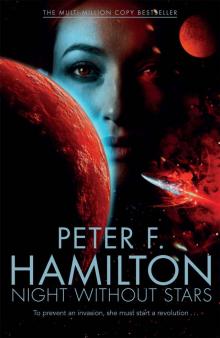 A Night Without Stars
A Night Without Stars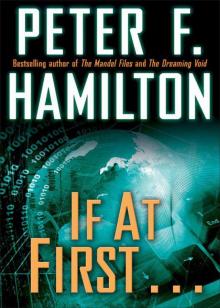 If at First . . .
If at First . . .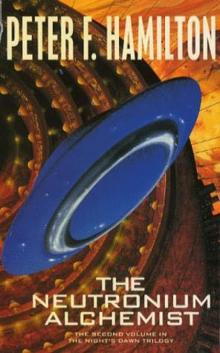 The Neutronium Alchemist
The Neutronium Alchemist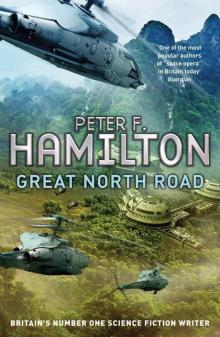 Great North Road
Great North Road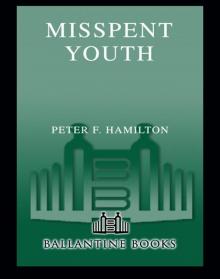 Misspent Youth
Misspent Youth Pandora's Star
Pandora's Star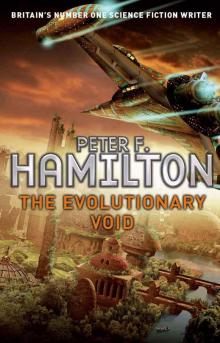 The Evolutionary Void
The Evolutionary Void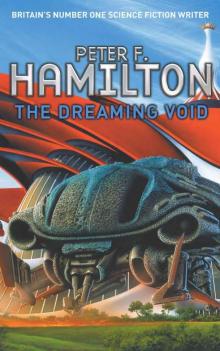 The Dreaming Void
The Dreaming Void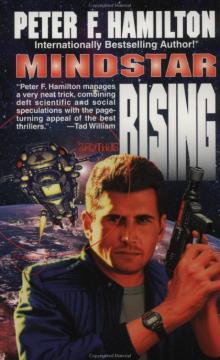 Mindstar Rising
Mindstar Rising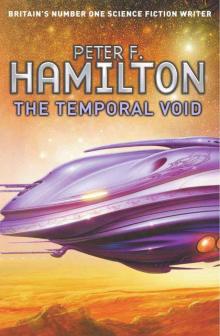 The Temporal Void
The Temporal Void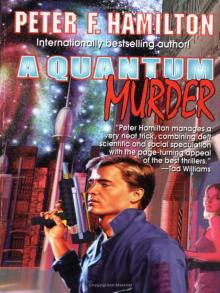 A Quantum Murder
A Quantum Murder The Hunting of the Princes
The Hunting of the Princes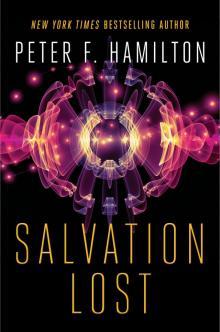 Salvation Lost
Salvation Lost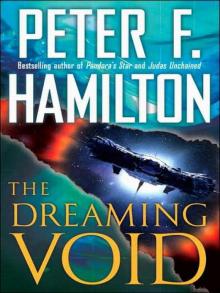 The Dreaming
The Dreaming Salvation
Salvation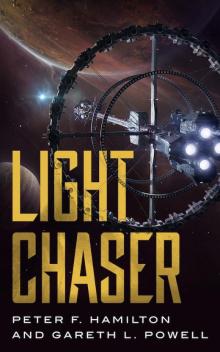 Light Chaser
Light Chaser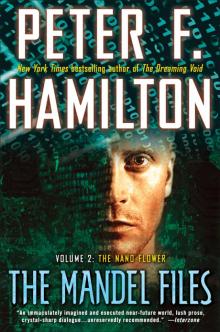 The Mandel Files, Volume 2: The Nano Flower
The Mandel Files, Volume 2: The Nano Flower![The Saints of Salvation [British Ed.] Read online](http://i1.bookreadfree.com/22/the_saints_of_salvation_british_ed__preview.jpg) The Saints of Salvation [British Ed.]
The Saints of Salvation [British Ed.]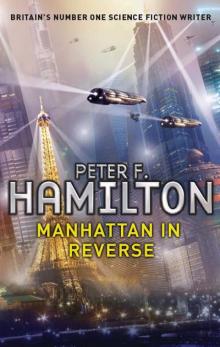 Manhattan in Reverse
Manhattan in Reverse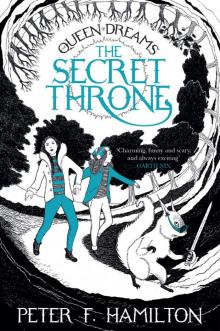 The Secret Throne
The Secret Throne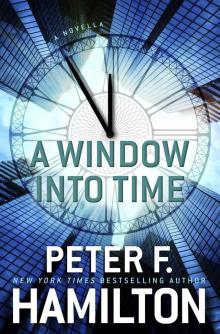 A Window Into Time
A Window Into Time A Second Chance at Eden
A Second Chance at Eden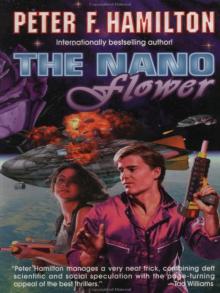 The Nano Flower
The Nano Flower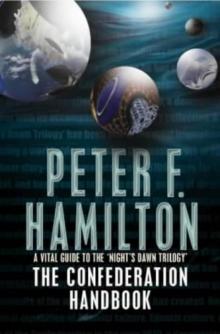 The Confederation Handbook
The Confederation Handbook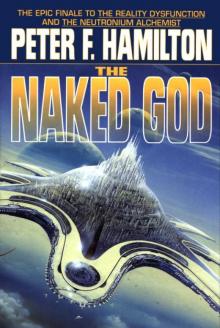 The Naked God
The Naked God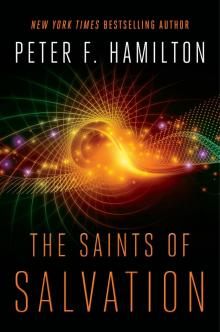 The Saints of Salvation
The Saints of Salvation The Void Trilogy 3-Book Bundle
The Void Trilogy 3-Book Bundle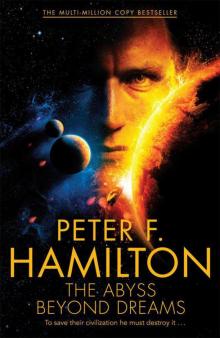 The Abyss Beyond Dreams
The Abyss Beyond Dreams A Voyage Through Air
A Voyage Through Air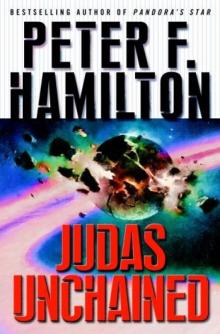 Judas Unchained
Judas Unchained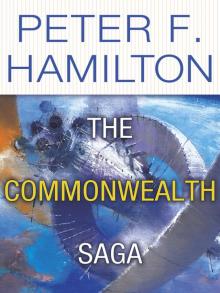 The Commonwealth Saga 2-Book Bundle
The Commonwealth Saga 2-Book Bundle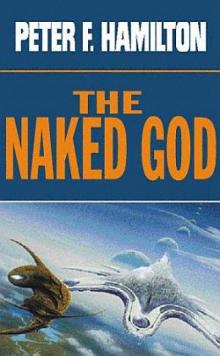 The Naked God - Flight nd-5
The Naked God - Flight nd-5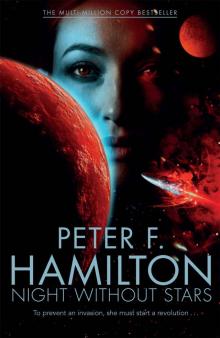 Night Without Stars (Chronicle of the Fallers Book 2)
Night Without Stars (Chronicle of the Fallers Book 2)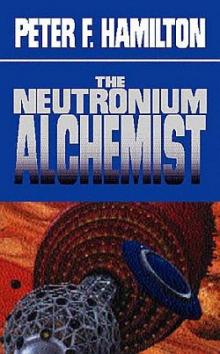 Neutronium Alchemist - Conflict nd-4
Neutronium Alchemist - Conflict nd-4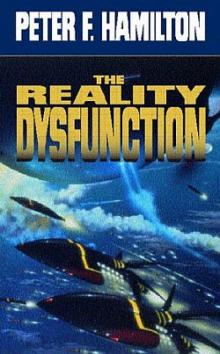 Reality Dysfunction - Expansion nd-2
Reality Dysfunction - Expansion nd-2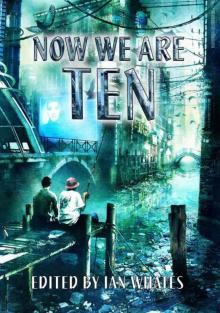 Now We Are Ten: Celebrating the First Ten Years of NewCon Press
Now We Are Ten: Celebrating the First Ten Years of NewCon Press Neutronium Alchemist - Consolidation nd-3
Neutronium Alchemist - Consolidation nd-3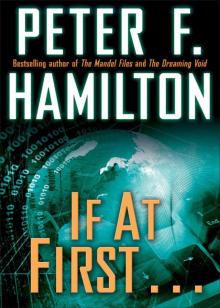 If at First . . . (Short Story)
If at First . . . (Short Story)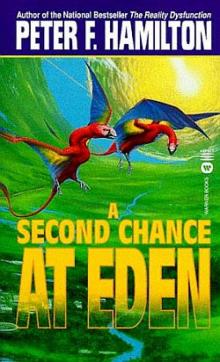 A Second Chance at Eden nd-7
A Second Chance at Eden nd-7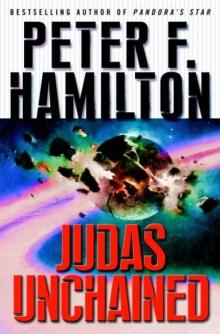 Judas Unchained cs-2
Judas Unchained cs-2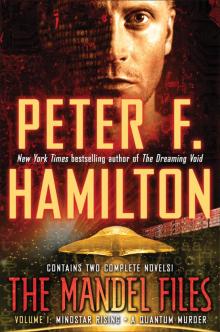 The Mandel Files, Volume 1
The Mandel Files, Volume 1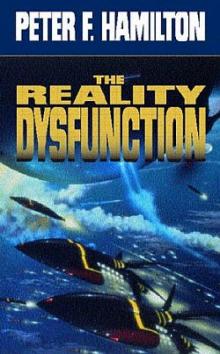 Reality Dysfunction — Emergence nd-1
Reality Dysfunction — Emergence nd-1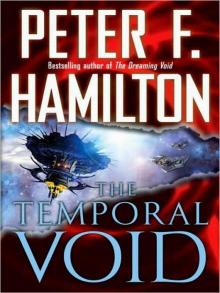 The Temporal Void (ARC)
The Temporal Void (ARC)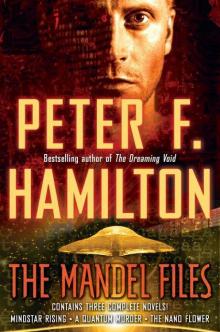 The Mandel Files
The Mandel Files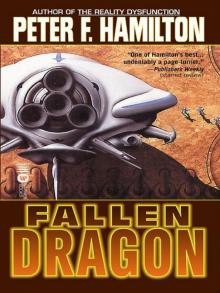 Fallen Fragon
Fallen Fragon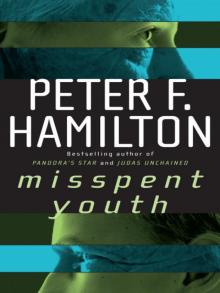 Misspent Youth (commonwealth saga)
Misspent Youth (commonwealth saga)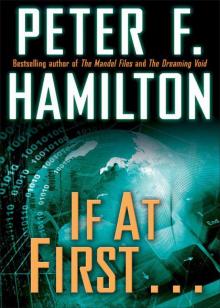 If at First...
If at First... Best of British Science Fiction 2016
Best of British Science Fiction 2016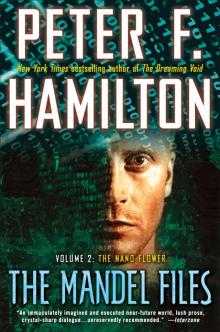 The Mandel Files, Volume 2
The Mandel Files, Volume 2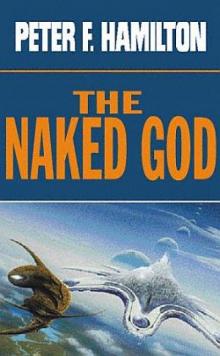 The Naked God - Faith nd-6
The Naked God - Faith nd-6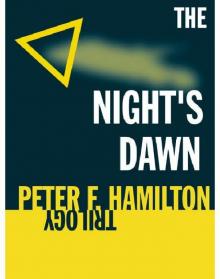 The Night's Dawn Trilogy
The Night's Dawn Trilogy Pandora's Star cs-2
Pandora's Star cs-2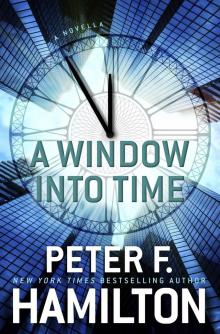 A Window into Time (Novella)
A Window into Time (Novella)